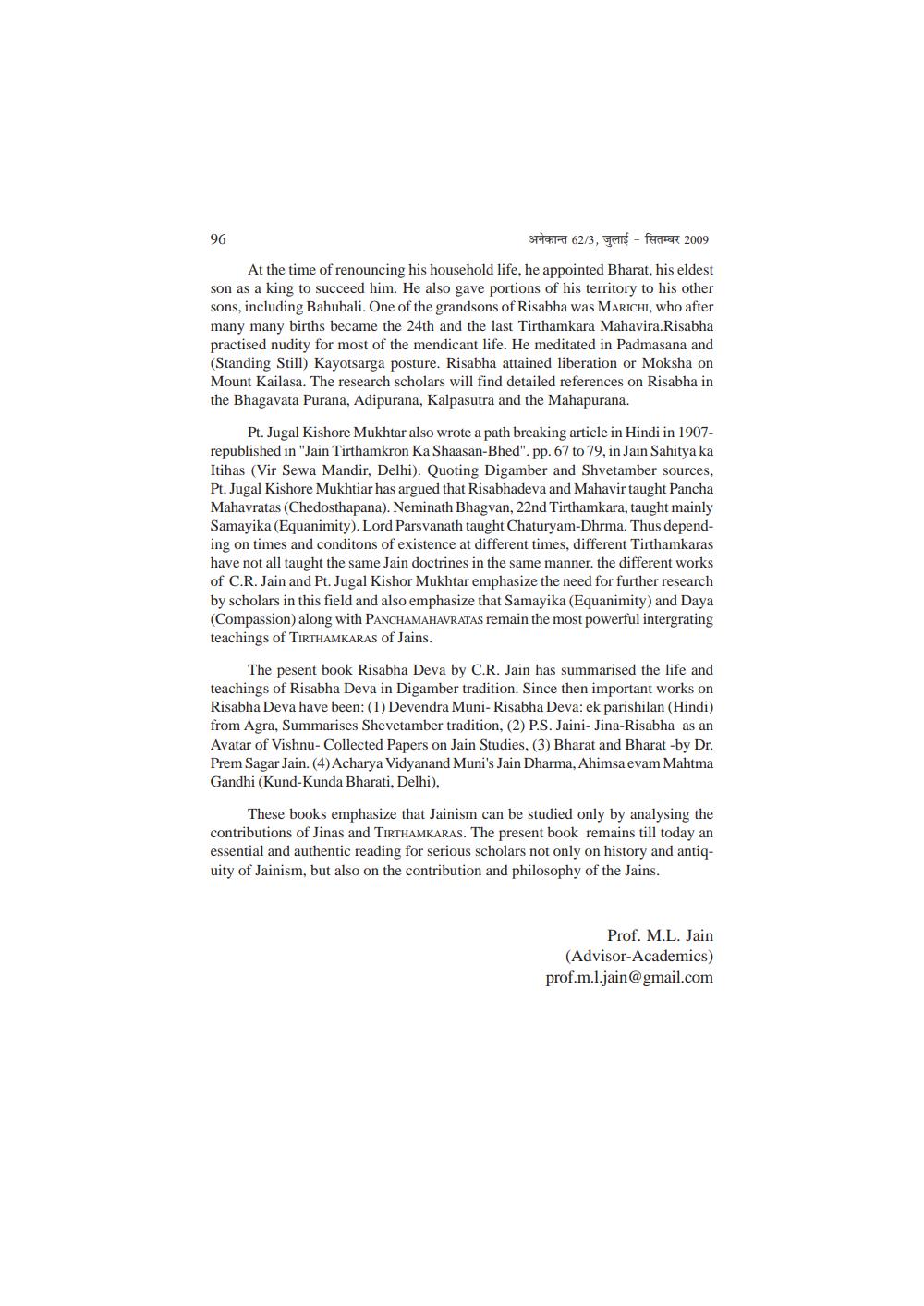________________
96
311762/3, as - HER 2009
At the time of renouncing his household life, he appointed Bharat, his eldest son as a king to succeed him. He also gave portions of his territory to his other sons, including Bahubali. One of the grandsons of Risabha was MARICHI, who after many many births became the 24th and the last Tirthamkara Mahavira.Risabha practised nudity for most of the mendicant life. He meditated in Padmasana and (Standing Still) Kayotsarga posture. Risabha attained liberation or Moksha on Mount Kailasa. The research scholars will find detailed references on Risabha in the Bhagavata Purana, Adipurana, Kalpasutra and the Mahapurana.
Pt. Jugal Kishore Mukhtar also wrote a path breaking article in Hindi in 1907republished in "Jain Tirthamkron Ka Shaasan-Bhed". pp. 67 to 79, in Jain Sahitya ka Itihas (Vir Sewa Mandir, Delhi). Quoting Digamber and Shvetamber sources, Pt. Jugal Kishore Mukhtiar has argued that Risabhadeva and Mahavir taught Pancha Mahavratas (Chedosthapana). Neminath Bhagvan, 22nd Tirthamkara, taught mainly Samayika (Equanimity). Lord Parsvanath taught Chaturyam-Dhrma. Thus depending on times and conditons of existence at different times, different Tirthamkaras have not all taught the same Jain doctrines in the same manner. the different works of C.R. Jain and Pt. Jugal Kishor Mukhtar emphasize the need for further research by scholars in this field and also emphasize that Samayika (Equanimity) and Daya (Compassion along with PANCHAMAHAVRATAS remain the most powerful intergrating teachings of TIRTHAMKARAs of Jains.
The pesent book Risabha Deva by C.R. Jain has summarised the life and teachings of Risabha Deva in Digamber tradition. Since then important works on Risabha Deva have been: (1) Devendra Muni- Risabha Deva: ek parishilan (Hindi) from Agra, Summarises Shevetamber tradition, (2) P.S. Jaini- Jina-Risabha as an Avatar of Vishnu- Collected Papers on Jain Studies, (3) Bharat and Bharat -by Dr. Prem Sagar Jain. (4) Acharya Vidyanand Muni's Jain Dharma, Ahimsa evam Mahtma Gandhi (Kund-Kunda Bharati, Delhi),
These books emphasize that Jainism can be studied only by analysing the contributions of Jinas and TIRTHAMKARAS. The present book remains till today an essential and authentic reading for serious scholars not only on history and antiuity of Jainism, but also on the contribution and philosophy of the Jains.
Prof. M.L. Jain (Advisor-Academics)
[email protected]



